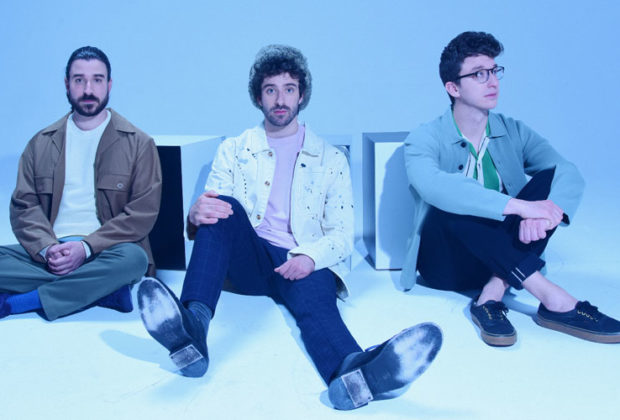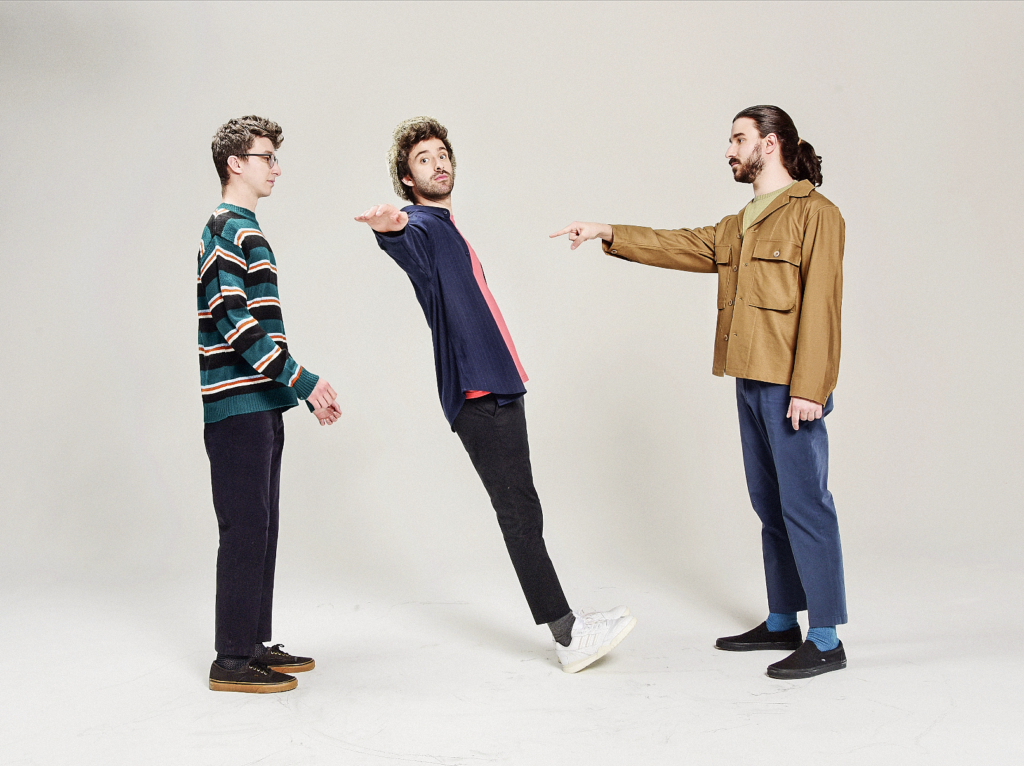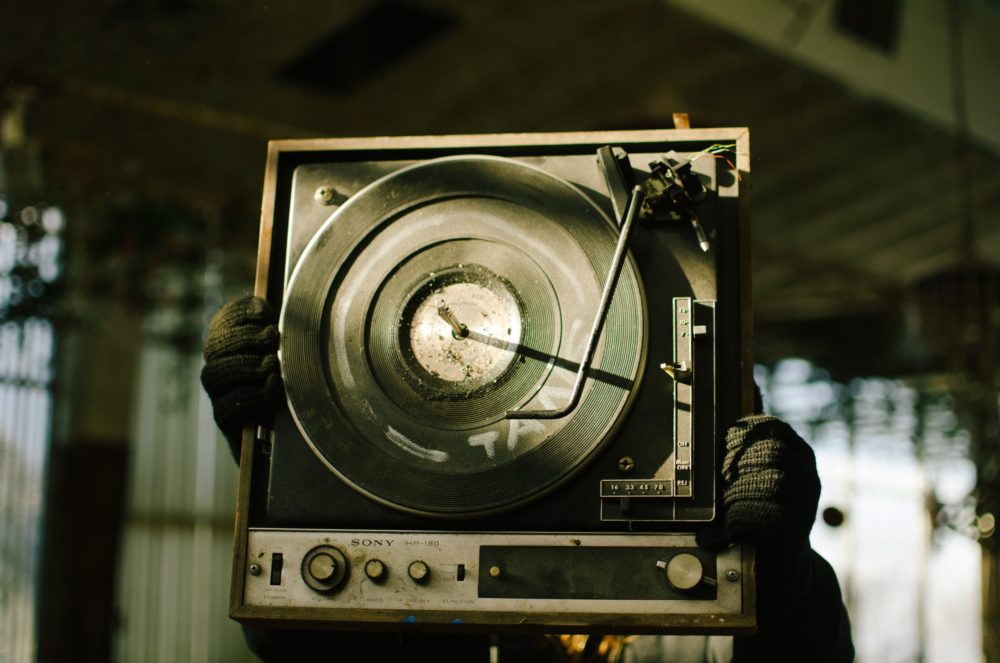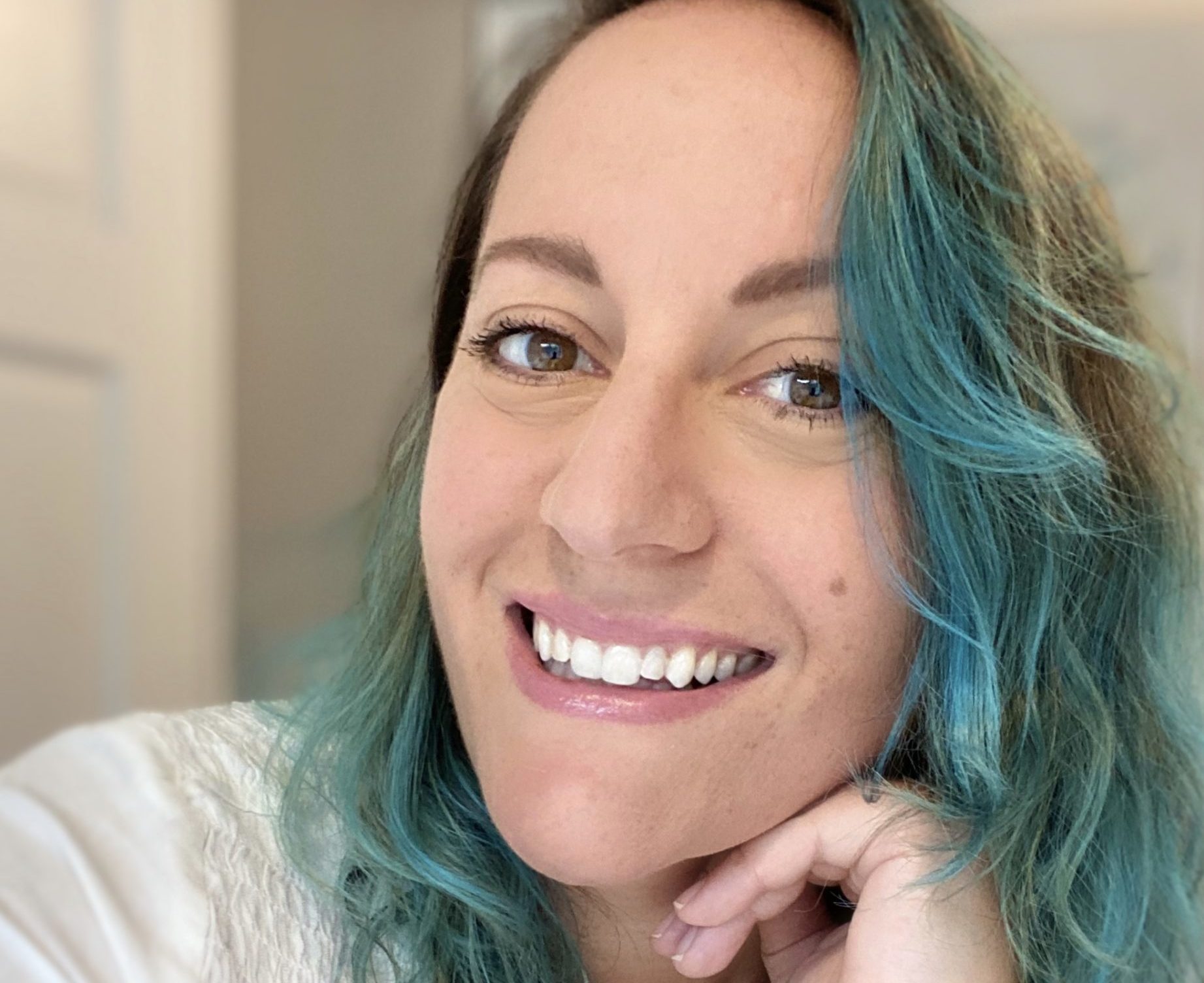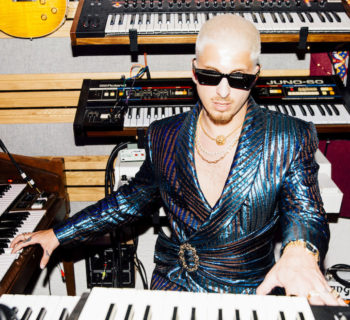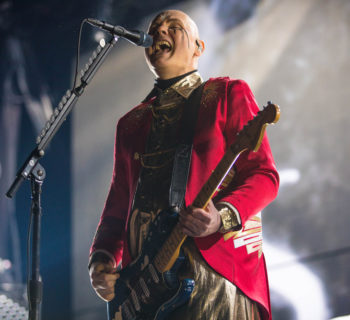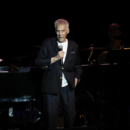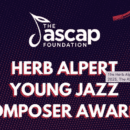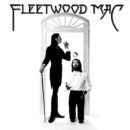Is it really plausible that the best combination of players would happen to be kin?
For AJR, the answer to that question is an emphatic “yes.” The trio of self-described nerds spent their childhoods in Chelsea, NY, simultaneously being inspired by the same musical influences that currently inform their sound. Their surname, Metzger, has been shortened to Met, presumably for public relations purposes. The group’s moniker is derived from the first letters of their primary names: Adam, Jack and Ryan. Jack handles lead vocals and guitar, as well as a host of other instruments ranging from melodica to cowbell. Adam plays bass, while Ryan serves keyboards. All three contribute samples.
This diversity of instrumental abilities is reflected in their music, which draws upon myriad genres including electropop, dubstep, doo-wop and even Broadway. It’s an intoxicating pastiche, as unexpected as it is effervescent. They’re a pop act with relatable, lovable lyrics that speak directly to the Millennial generation’s anxiety-riddled emotions, hopes and desires.
Most notable are the group’s videos. Bursting with humor and memorable imagery, it makes sense that they’re so good, considering Jack and Ryan studied film at Columbia University. One treatment for their song “I’m Not Famous” has them playing against a backdrop of wildly impressive, supposedly real-time trick shots. The video for “Let the Games Begin” features them jamming inside a grocery store, whereas “Bummerland” presents them as bald twenty-somethings. For “BANG!,” they’re seen performing astride a roulette table surrounded by gamblers whose outfits switch upon repeated camera zooms.
The brothers’ videos are just one manifestation of their outsized creativity. AJR’s live shows are renown for stunning visual flourishes. A recent virtual concert, dubbed AJR’s One Spectacular Night, featured cutting-edge effects, including lasers. The show ultimately generated 32 million impressions. Merchandise includes not only the usual assortment of t-shirts and hoodies but also their own brand of hot sauce.
With the release of OK ORCHESTRA, AJR appears poised for stardom. Music Connection spoke with Jack and Ryan to find out what makes them tick and discover how they’ve stayed true to themselves in the face of mounting career pressures.
Music Connection: Congratulations on the release of OK ORCHESTRA. Was writing it different from writing your other albums?
Jack Met: This was definitely a different album to write. It had everything to do with the pandemic. For us, the recording process wasn’t much different because every song we’ve put out has been written and recorded in our living room or bedroom of whatever apartment we’ve been living in.
The difference was [we couldn’t] really get much inspiration from the outside world, which is usually where we get inspiration. A lot of our songs have been written from going to movies or college parties and looking at the problems our friends are facing or what they’re dancing to. Obviously, that wasn’t an option this year, so Ryan and I had to really dig deep into our pasts, find our deepest insecurities and draw from that, which was really difficult and taxing.
MC: Ever thought about going into a studio?
JM: If it’s not broken, don’t fix it. But also, when you go into a real studio, you’re paying by the hour. There’s usually an engineer. There’s all this pressure put on you. And our writing style is very sporadic. We could write for three minutes and then run into a block, run out, come back and write for three hours, then wake up at 2 a.m. It’s very random. So to not have that pressure is really liberating.
MC: Have you ever recorded in a studio?
JM: Our last album, Neotheater, was very classically influenced. There were old Disney strings and choirs. We did all that in an L.A. studio with a 30-piece orchestra. That was the coolest recording moment of our career.
MC: Tell us about your writing process. Do you match lyrics to beats or do you start with beats?
Ryan Met: It really depends on the song. With a lot of the singles, the concept comes first because that’s very much the way to penetrate people’s minds. “Here’s an interesting concept.” The track comes later to try to match that concept with sound. For some of the weirder songs on the album… A song like “3 O’Clock Things,” that started with a track. We had a bass line. We had these old fashioned vocals over this hip-hop beat. Once we had a beat that was the right vibe, then it was a stream-of-consciousness freestyle over that.
MC: How do you work to balance everybody’s artistic voice when you’re writing?
RM: It’s been 15 years of figuring out who is good at what. That’s the best advice we could give to bands in order to not butt heads. Jack has the best melodic sensibility, so if he’s saying, “Guys, I promise this is the catchier melody,” we’re going to listen to him. I think I have more credibility when it comes to the emotional stuff. If I say, “This is going to make people cry. This lyric is going to cut right to people’s hearts,” then I’m going to be listened to. And Adam is definitely more on the business end. If he says, “I promise we can play for 12,000 people in Little Rock,” we’re going to trust him.
MC: You got the guy who does the voice on the New York subway system contributing on “BANG!” How did you make that connection?
JM: If you’re from New York, you know that, “Stand clear of the closing doors, please,” plays every time before the subway doors close. Three or four years ago, we were on stage doing an album release show and did a little remix on the sample machine of [that] and put a beat behind it. A video of it got out and I think he ended up seeing it. He emailed us saying, “That was hilarious. I’m a big fan.”
We were writing “BANG!” and had [the lines] “here we go” and “metronome” already in the song. Who can say [these lines] with this manly voice? We tried our dad and our neighbor. Neither of them really had it. And then we realized we have the best voiceover actor in our in-box. Let’s ask him. He sent [his recorded bit] back the same day. We dropped it in and it quickly became everyone’s favorite part of the song.
MC: Blue Man Group is on “Ordinaryish People.” Were you fans of Blue Man Group prior?
JM: Yes, we were and are huge fans of Blue Man Group. We saw them for the first time when we were very young. When we started conceptualizing a live show for AJR, we took a ton of influence from them in terms of unpredictability and sporadic-ness. You can’t look away, because you don’t quite know what’s happening. So we adopted a lot of that.
We were huge fans of the musical aspect, too. So we said, “We want a feature on this song. Let’s pick someone who people would not expect, that there’s no way they could guess.” And this is probably the least guessable feature someone could have. They’re amazing percussion-wise, so we worked with them and they came up with this great bridge. We love how it turned out.
MC: Your videos are so inventive and funny. How do you come up with the concepts?
RM: Jack and I went to school for film at Columbia. Recently, we decided we’re going to co-direct a lot of our videos because we have a clear vision while we’re writing, so let’s see that through. With all the videos from this OK ORCHESTRA era, it’s been very much “how does ‘BANG!’ look to us? When we hear ‘BANG!,’ what do we see?” It was very red and creepy and casino, so we built this video concept around it. The same went for “Bummerland”’s summery feeling and “My Play”’s dark, animated feeling and “Way Less Sad”’s quirky, something’s-weird-here-but-I’m-kind-of-laughing feeling. It’s been a lot of fun for us to team up with a childhood friend of ours, Edoardo Ranaboldo. He’s directing and we’re kind of directing with him.
MC: Jack, you used to be a child actor. Did that experience help you with making videos and performing live?
JM: Yes and no. Acting gave me a bit more comfortability in terms of being in front of people and a little more outgoing and confident. On the other side, I didn’t like acting at all. I didn’t like being given lines and seeing everyone whispering. I felt very out of the loop and uncomfortable.
MC: You both directed the video for “Turning Out,” which is an animated masterpiece. What was that experience like? Was it more difficult than you anticipated?
JM: No, not at all. We knew we wanted to do a guy and a girl becoming a couple in space. From there, we drew every frame using stick figures. Then we worked with this animation team who were interns at Pixar at the time. They were big fans of us. It was actually pretty easy.
MC: How have you managed to not be influenced by everyone around you and maintain your independence?
RM: It may have just happened from so many years of doing this. We tried so many genres and made so many mistakes before the public was even watching. We’re very lucky that we were able to put out so many bad albums and take bad photos before we had a fan base to judge us. By the time “I’m Ready” blew up and we had this fan base, we already knew, “Okay, let’s not go down that route again. Nope, let’s not take that picture again.” And we had a way clearer picture of whom we wanted to be presented as.
MC: Your current deal with BMG is not your first. What has your industry experience taught you?
RM: We’ve jumped around a lot. The goal has always been “Let’s maintain our publishing, stay completely in charge creatively and free. And whatever deal falls into our laps, let’s make sure we never get shelved. Let’s make sure we are always the priority.”
For a while, we did it completely independently. We did a joint venture with Warner Brothers for a while. We got to use their radio team. And then we were with Sony RED for a while, using their radio team. Now that we’re with BMG, we’ve compiled our own Frankenstein radio team using some of Hollywood’s staff and some of our own people.
This probably has been our favorite setup so far, because we’ve met enough industry people to know who’s bullshitting and who actually cares about the project. It’s been very much trial and error, but we’re pretty proud of the place we’re at.
MC: How did you come up with the idea to kick off the album with a medley of the album’s other songs?
RM: We’ve done overtures before, for Living Room and The Click. We had overtures start both those albums. We’re enormous fans of musical theater and grew up seeing every Broadway show and becoming obsessed with their soundtracks. As much as we tried to run away from that sound, it kind of kept catching up with us. We couldn’t shake it.
With this album, we’ve leaned more into the musical theater sound than ever before. And that includes starting with an overture where you get this artistic sampler of every song you’re going to hear but in these new contexts. It doesn’t make much sense the first time you hear it. It’s hard to understand what’s going on because it doesn’t sound like a song. Our hope is that it will make people listen to the album 10 or 20 times in order to pick out each song within the overture.
MC: It works as an introduction and then when your album repeats it works as an epilogue.
RM: I love that.
MC: Part of your success comes from tweeting your song “I’m Ready” to a bunch of celebrities, including Sia. Was that a calculated decision? Do you recommend other artists do that to gain popularity?
JM: It was a very Twitter 2012 moment. I’m not sure it would work now because Twitter is so convoluted and clogged. But at the time we tweeted the song to every celebrity we could. Sia saw it and retweeted it. She DMed us saying, “Come meet me in my hotel for brunch.” I haven’t heard another artist’s story that sounds like that, which makes me think it’s not the best way to go about being an artist.
Probably a more surefire way of taking off is gaining a fan base on YouTube or TikTok or Instagram and having that army behind you. That was kind of an anomaly where [Sia] happened to be looking at Twitter and trusting enough to want to meet us and introduce us to people.
MC: Was there a noticeable shift once she started mentioning you? Did you notice your popularity rise?
RM: It didn’t immediately cause our popularity to rise, but it gave us new respect in the industry. Suddenly, we weren’t complete nobodies. We had a stamp of approval from this extremely respected singer-songwriter. When we went into meetings with labels or management, they suddenly cared about what we had to say because Sia cared what we had to say.
MC: Taylor Swift became a fan and playlisted one of your songs. How did that feel when you found out she was a fan?
JM: That was insane. We had no idea that was going to happen. We called everyone on our team and said, “Who made this happen and didn’t tell us?” And no one did. She chooses all those songs by herself. It was the greatest feeling in the world. To get validation from the biggest artist in the world, you can’t get any better than that. It was a very surreal moment.
MC: You were involved in Barack Obama’s campaign to stop sexual assault on college campuses. Is there a personal story behind wanting to be involved in that? How satisfying was it to release a song in conjunction with that campaign?
JM: That was amazing. We were a much smaller band back then, so it was that much more exciting to go to the White House and play. I think Adam knew the director of that organization from high school. She was always a fan of the band. She reached out and said, “Do you want to do this?” Not that we had our own personal connection, but it’s a very real problem in the world, especially among our fan base. We hear in meet-and-greets pretty serious stories about how our music has saved fans from situations like this. It felt important that we get involved.
MC: You’ve had two tours cancelled due to the pandemic. How have you been trying to stay optimistic in the face our current situation?
RM: When we found out tours were going to be cancelled, our first thought was, “How can we do shows that are safe?” Last summer, we did these drive-in shows that were really fun. And then we did this big virtual show, One Spectacular Night, where Jack was walking on lasers and being picked up by a giant hand. It was this big, theatrical thing that was super fun.
Our albums are very tied to live performances. While we’re making the album, we’re imagining how this will read on stage. Will this be a finale? What will Jack be doing? What kind of crazy effects can be tied to this song? So it was a bummer to make this album without the prospect of being able to play it live. But we’re actually super excited. A few days ago, we announced the OK ORCHESTRA tour for 2022. I know it’s a while away, but now we have something to look forward to.
MC: You mentioned the virtual concert. Were you involved in every aspect of making that happen? How did you craft that?
RM: The entire AJR concert experience, both virtual and live, comes from me and Jack sitting down and accessing our 10-year-old brains. “What if Jack gets picked up by a big hand?” “What if Jack’s walking in an apple orchard and then climbs a tree?” It usually takes two days to come up with every crazy gag. And then we have to access the adult side of our brains where it’s like, “Okay, how feasible is that?” It’s a labor of love in that sense.
MC: Were you working on the visual appeal of your performance in the early days?
RM: When we first started headlining, that was a big discussion. We were told by a lot of people, “Just play the songs.” And we had a feeling that people want more than the songs. Because they could just listen to the album at home. So we had these thoughts. “What if we brought buckets on stage and had light-up drum sticks?” “What if we had a big backdrop that peeled away with Velcro to reveal something else?” These are the smallest, most minute versions of what we do now, but in a 200-person venue they read as huge effects.
That’s our mentality. Even if we make a lot less money on tour, let’s give fans an unbelievable experience. And then they’ll come back and bring three friends. It’s worked well for us because we’ve never done two tours of the same size. Every tour we announce, we’re able to double or triple the venue sizes. And now we’re at a point where we really have to step up the production and do the craziest, coolest shows that anybody’s seen.
MC: You understood that doing something novel live was important from an early stage.
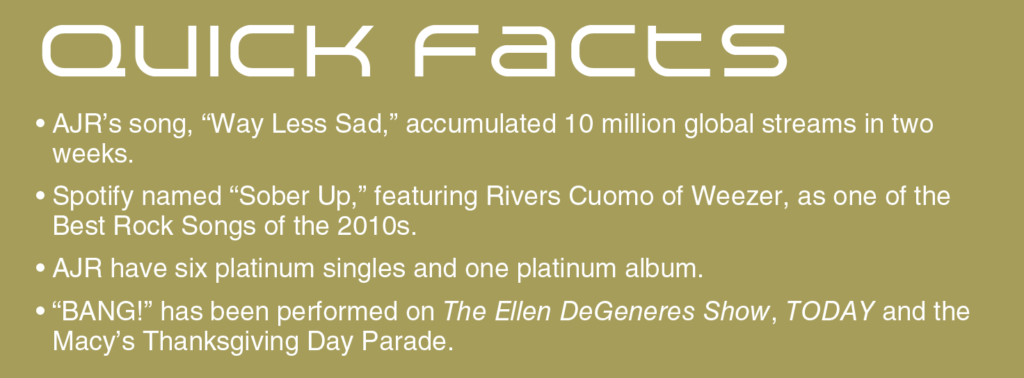 RM: I think so. Just being able to see the audience reaction of, “Wow, I’ve never seen that before,” that’s the greatest high we could ever get. Nothing beats that.
RM: I think so. Just being able to see the audience reaction of, “Wow, I’ve never seen that before,” that’s the greatest high we could ever get. Nothing beats that.
MC: Ryan, you have synesthesia, a condition where senses get jumbled. Can you talk about how the colors and shapes you see when you hear sounds help you compose?
RM: Synesthesia is essentially a crossing of wires in your brain where every time you hear the word Tuesday you could see it as yellow. For me, I see songs as colors and certain sounds as shapes. That helps when we’re putting together an album. If I see a song like “Humpty Dumpty” as icy purple and silver, I know we want something that’s a little warmer colored next to it.
With drum sounds, for instance, I see the snare of “BANG!” as this little chrome ball. So I think, “Okay, what kick goes with that chrome ball? Let’s find a kick that’s a big, black, shiny semi-circle.” This means absolutely nothing to anybody that isn’t me, but it’s a picture that makes sense in my mind. I want to paint an auditory picture that makes sense. From an infinite amount of sounds, I’m able to narrow it down and figure out what paints the best picture.
MC: What should artists do to advance their careers?
JM: There are the obvious [suggestions], like putting up as much content as possible, practicing and writing a thousand songs. But most important is finding something about yourself that’s unique and different. If you pick one thing about yourself and really push that, it’ll separate you from the bunch.
MC: Is there anything else worth mentioning?
JM: The biggest goal with this album and AJR’s sound in general is to point out very small, seemingly unimportant problems and blow them up. Multiple things can be sad and there’s nothing wrong with lamenting something that feels really big to you. A lot of our fans say they connect to these problems that are not being spoken about enough. I hope fans connect on that level and continue diving in, knowing that their problems are important. They’re not alone.
Contact The Oriel Co.
Carleen Donovan, carleen@theoriel.co
Amanda Brophy, Amanda@theoriel.co
See ajrbrothers.com

